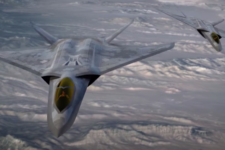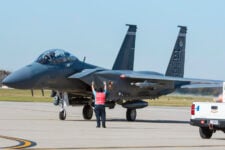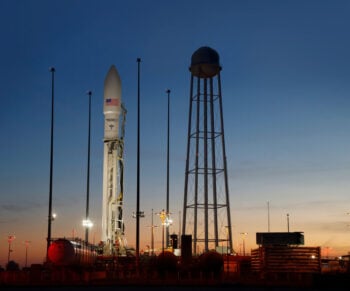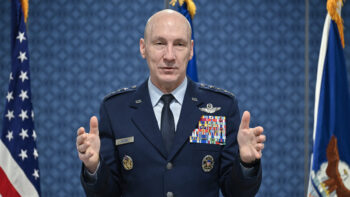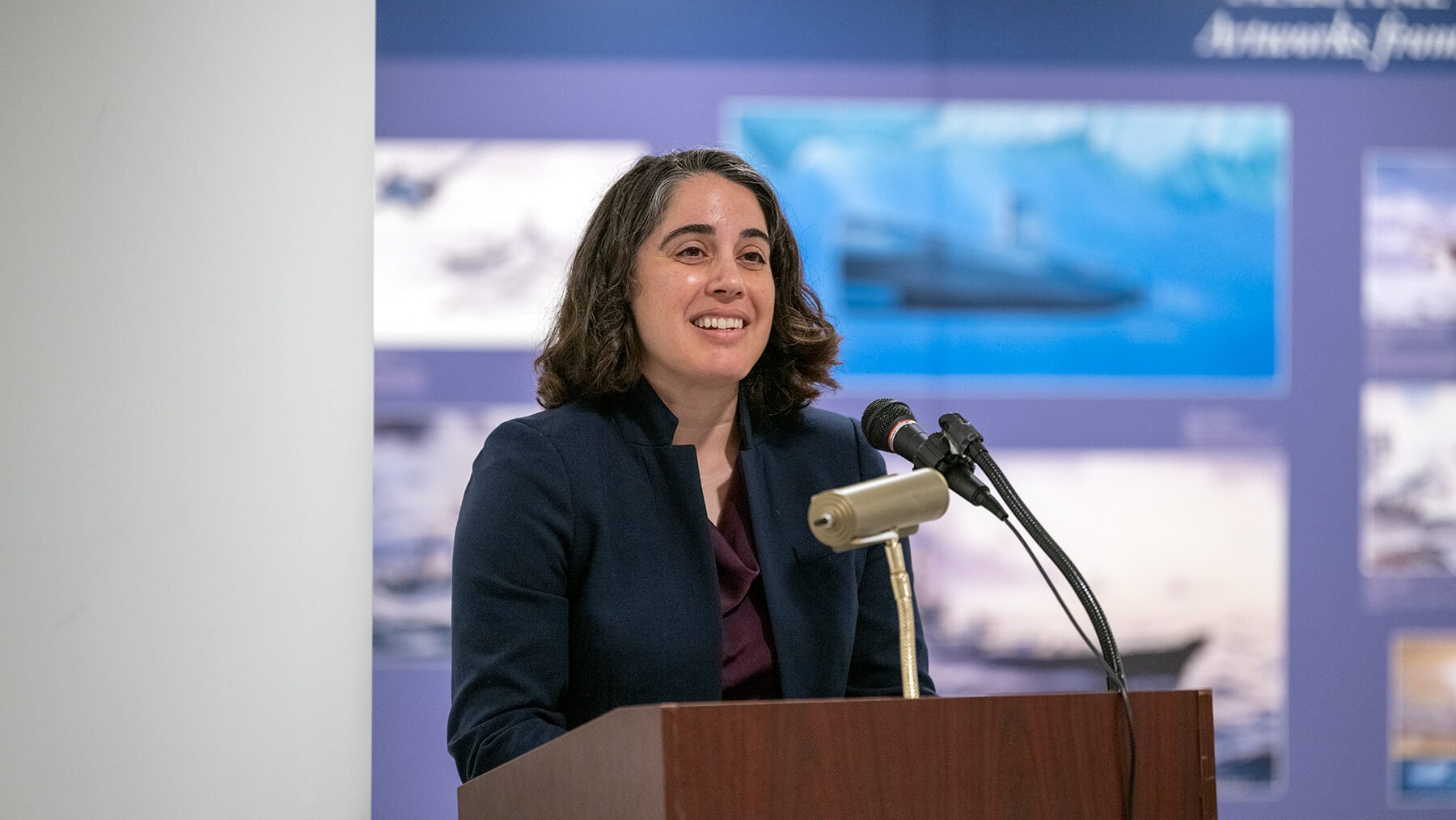
Melissa Dalton, performing the duties of Deputy Under Secretary of Defense for Policy, gives her remarks during the Pentagon Explosive Ordinance Disposal (EOD) corridor exhibit unveiling in Arlington, Va., April 23, 2024. (U.S. Army photo by Christopher Kaufmann)
WASHINGTON — The US Senate today approved the nomination of Melissa Dalton to serve as the next Air Force Under Secretary, ending a year-plus spell in which no official was confirmed to the role.
Dalton will take the reins from Kristyn Jones, who has been performing the duties of the office since former Under Secretary Gina Ortiz Jones stepped down in March 2023. The Under Secretary oversees both the Air Force and Space Force, under incumbent Air Force Secretary Frank Kendall.
Dalton previously served as the assistant secretary of defense for homeland defense and hemispheric affairs, which put her near the center of the alleged Chinese spy balloon incident. She then went on to perform the duties of the deputy under secretary of defense for policy in December.
Following President Joe Biden’s nomination of Dalton for the Air Force role in September, Republicans grilled Dalton on her role in the Pentagon’s handling of the balloon saga in a January confirmation hearing. Dalton also faced questions from GOP members related to the southern US border, and was chastised for what they said was her lack of responsiveness to their inquiries on the topic.
Months later, a small group of Republicans joined with Democrats to approve Dalton’s nomination, approving her candidacy in a 56 to 39 vote.
Dalton will now play a key role in crafting both the budgets of the Air Force and Space Force, and guiding the service through budget caps for fiscal years 2024 and 2025 imposed by Congress. She will also be instrumental in the Air Force’s “reoptimization” drive to counter China, particularly for planned changes in the service’s secretariat that makes policy and budgeting decisions.
The new Under Secretary will also be charged with oversight of key acquisition programs like the service’s delayed and over-budget Sentinel ICBM, projects from which Kendall has recused himself due to his past work for prime contractor Northrop Grumman.
Meet Sergeant Stout: Army gives Stryker-Based M-SHORAD a proper name
As the service rolls out a name change for the new(ish) air defense weapon, it is also eyeing future upgrades that could integrate with robots and new interceptors.



